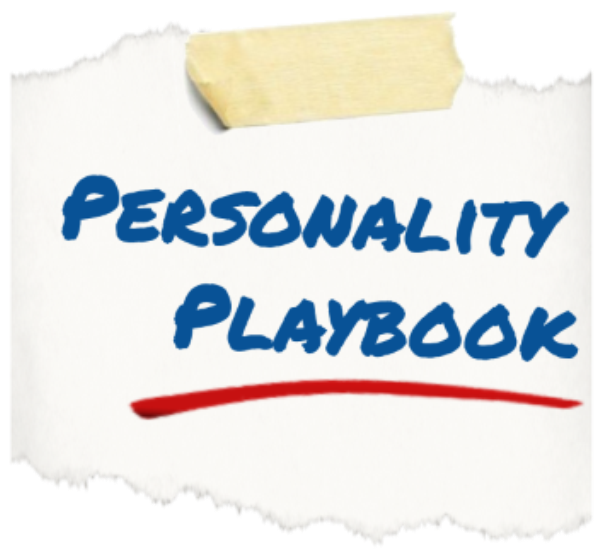
 One of the big buzz topics on college campuses near and far is how to get students engaged in college life. This engagement is commonly known to improve student retention and success, but how can colleges best cover the largest majority of the student population with activities they want to dive into? Well, as a college counselor and not a student activities specialist, I certainly do not have all of the answers to this question, but the book Using the MBTI® Instrument in Colleges and Universities by Judith Provost and Scott Anchors provides some insight into how type can be used to better understand student involvement.
One of the big buzz topics on college campuses near and far is how to get students engaged in college life. This engagement is commonly known to improve student retention and success, but how can colleges best cover the largest majority of the student population with activities they want to dive into? Well, as a college counselor and not a student activities specialist, I certainly do not have all of the answers to this question, but the book Using the MBTI® Instrument in Colleges and Universities by Judith Provost and Scott Anchors provides some insight into how type can be used to better understand student involvement.
It is probably no surprise that people who prefer Extraversion are more drawn to interactive and action oriented activities, while those preferring Introversion tend to prefer smaller groups and more reflective activities. Looking at the attitudes of type (the first and last letter), we gain a few more insights.
- IJs tend to be quite particular about the types of activities they choose to engage in on campus. Activities, for this group, must often compete for attention with studies and work obligations, which are likely to take priority. IJs will often prefer activities that have a definite start and end time and have some organization to them. After all, spur of the moment and unorganized activities may leak too far into time scheduled for other priorities. IJs may find career counseling, attending academic lectures, or other similar activities more appealing than some other methods of engagement. These individuals may need encouragement to add extracurricular activities to their work loads to achieve balance.
- IPs typically engage on campus by happening upon activities or having activities happen upon them. They may be less interested in organized and structured activities and more interested in living in the moment. Being Introverts, IPs still tend to prefer small group activities. They may find happening upon an impromptu guitar playing on campus, finding a volunteer fair (which allows wandering in and out at will) between classes, or hanging out with a few friends in the food court on campus more appealing than other activities.
- EPs tend to enjoy being both socially and physically active on campus. They tend to enjoy less structured and more exciting and lively campus events, and they are known to enjoy a good party. Sometimes, EPs find themselves being interested in so many activities that they become overwhelmed when schoolwork ramps up, and they may have to disappear from the social scene for awhile to catch up. Then, when schoolwork is in a lull state again, social activities are likely to resume in full force. For EPs, finding balance may include learning to find fun ways to work and managing time in a way that provides a good mix of academics and socialization. EPs are often engaged by energetic impromptu group discussions, large social or cultural gatherings, and adventurous (mentally and/or physically) activities more than some other methods of engagement.
- EJs often like to make their mark on campus through leadership and/or taking active part in some of the more traditional activities on campus. EJs tend to prefer fairly structured and organized activities, and they love to help and/or improve campus organizations that fit their interests. These individuals often gain spots of prominence and become well known to other students. EJs are likely to enjoy Greek life, student government, leadership, and similar activities more than some other methods of engaging on campus.
 Chances are, most colleges have activities already that fall into the categories above, but even small tweaks may help students engage on campus! Many campus buildings are now being designed with a mix of open spaces that are more appealing to Extraverts and cozier, more private spaces that Introverts find appealing. Even if you do not have an MBTI® acquainted architect at your disposal, grouping 2 – 4 chairs in an open room closer to a wall and keeping larger groupings of seats in the middle of the room may provide an invitation for students of all types to get comfortable in a space. When having Freshmen students seek out campus activities, events, and services, also have them seek out quite spots, campus nooks, and places where small groups are known to gather.
Chances are, most colleges have activities already that fall into the categories above, but even small tweaks may help students engage on campus! Many campus buildings are now being designed with a mix of open spaces that are more appealing to Extraverts and cozier, more private spaces that Introverts find appealing. Even if you do not have an MBTI® acquainted architect at your disposal, grouping 2 – 4 chairs in an open room closer to a wall and keeping larger groupings of seats in the middle of the room may provide an invitation for students of all types to get comfortable in a space. When having Freshmen students seek out campus activities, events, and services, also have them seek out quite spots, campus nooks, and places where small groups are known to gather.
These are just a few tips on helping individuals of all types become engaged on campus. I also highly recommend you check out Using the MBTI® Instrument in Colleges and Universities by Judith Provost and Scott Anchors! It has chapters on many aspects of college life. I am sure a lot of you have great ideas that are already working for you, and I would love to hear them! I’d also love to hear your type and your own personal favorite ways to engage on campus (past or present).






